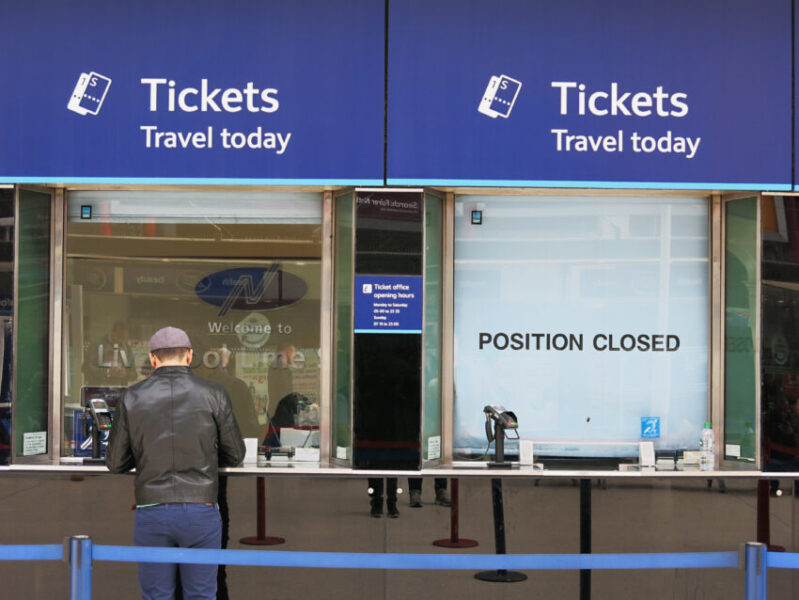
Rail firms have announced plans for the mass closure of England’s ticket offices to “modernise” the railway, ramping up the battle with unions and infuriating disability and passenger groups.
The move, pushed by the government to save costs, was confirmed by the industry body, the Rail Delivery Group. Train operators told staff on Wednesday morning of proposals to shut down almost all of the 1,007 remaining offices, bar at the busiest stations, within three years.
The RDG said ticket office staff would move on to station platforms and concourses in “new and engaging roles”. However, many fear job losses, with any guarantees offered over compulsory redundancies in pay talks set to expire at the end of next year.
The RMT union called it “a savage attack on railway workers, their families and the travelling public” and claimed operators had issued statutory redundancy notices affecting hundreds of staff.
Train operators said there were no redundancy notices, but it is understood that section 188 letters – informing unions and staff that posts were at risk, and a legal requirement for possible widespread redundancies – have been sent.
The RMT general secretary, Mick Lynch, said: “It is clear that the whole enterprise of closing ticket offices has got nothing to do with modernisation and is a thinly veiled plan to gut our railways of station staff.”
Among the proposed closures are 131 out of 149 remaining Northern Rail ticket offices; stations as big as Darlington and Durham on LNER; and all those run by Avanti West Coast.
Offices will be axed and support staff hours reduced across stations including London Euston, Birmingham New Street and Manchester Piccadilly.
Labour has warned that “rushed” plans could worsen the “managed decline of our rail network”, while transport campaigners said it would put more vulnerable people off rail travel.
However, the industry argues that only 12% of tickets are now bought at offices, down from 82% in 1995, with moves continuing to expand contactless payments and online buying.
England’s big passenger train operators are directly contracted by the government and have been told to find savings to bridge the gap in revenue, with fare income still more than 20% down since the coronavirus pandemic and the decline in commuting amid a switch to hybrid working patterns.
Train operators remain in dispute with unions but the government has pushed rail firms into moving ahead with controversial reform, with little headway in negotiations and more strikes coming. The RMT and TSSA unions have said they will “vigorously oppose” the proposals.